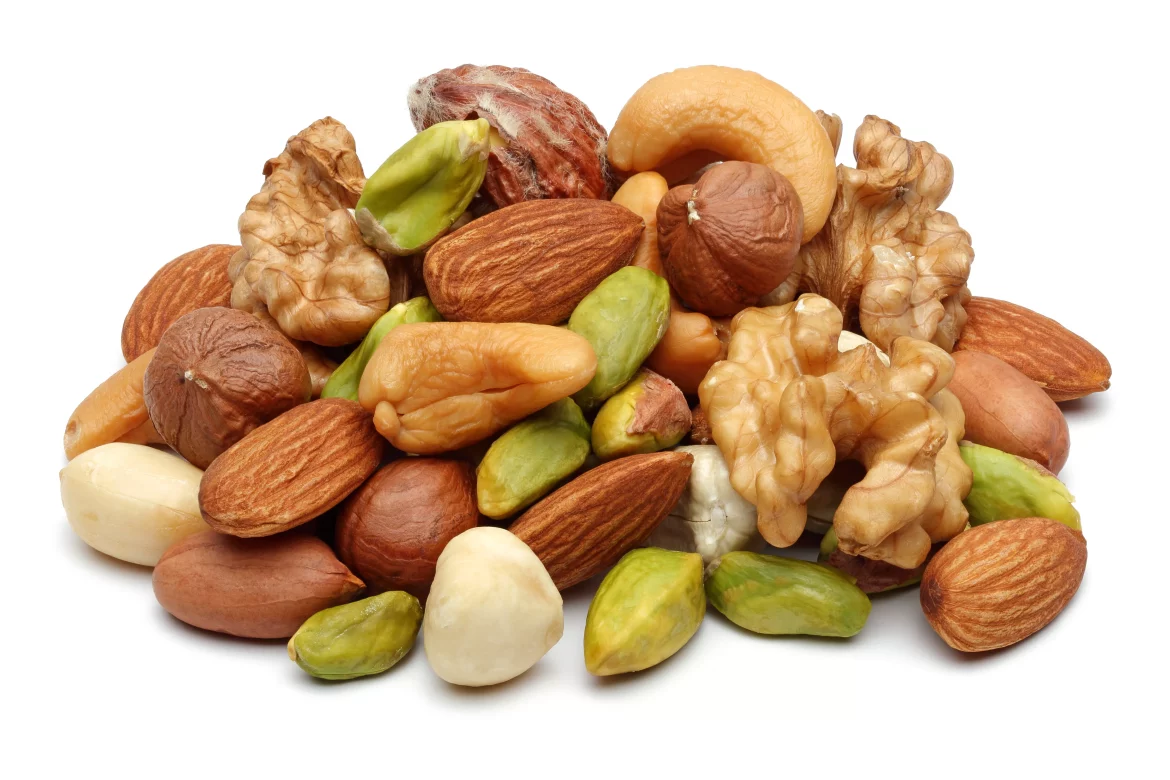High blood pressure, or hypertension, is a significant health concern affecting millions of people worldwide. It increases the risk of severe health issues, including heart disease, stroke, and kidney failure. One effective way to manage blood pressure is through diet. Among various dietary choices, nuts have gained attention for their potential benefits in lowering blood pressure. This article explores which nuts are most effective in reducing blood pressure and the scientific evidence behind these claims.
Which Nuts Reduce Blood Pressure
Almonds
Nutritional Profile and Benefits
Almonds are rich in nutrients, including healthy fats, fiber, protein, magnesium, and vitamin E. They are particularly noted for their high magnesium content, which plays a crucial role in blood pressure regulation. Magnesium helps relax blood vessels, improving blood flow and reducing hypertension.
Scientific Evidence
Several studies have highlighted the benefits of almonds in lowering blood pressure. A study published in the Journal of Nutrition found that consuming almonds regularly can significantly reduce both systolic and diastolic blood pressure in individuals with elevated levels. The study attributed these benefits to the high magnesium content and the presence of antioxidants in almonds.
Walnuts
Nutritional Profile and Benefits
Walnuts are a powerhouse of essential nutrients, including omega-3 fatty acids, antioxidants, and fiber. The high levels of alpha-linolenic acid (ALA), a type of omega-3 fatty acid, are particularly beneficial for cardiovascular health. These fatty acids help reduce inflammation and improve arterial function, which can lower blood pressure.
Scientific Evidence
Research published in the American Journal of Clinical Nutrition demonstrated that a diet rich in walnuts led to significant reductions in blood pressure. The study found that the omega-3 fatty acids in walnuts contributed to improved endothelial function and reduced vascular inflammation, thereby lowering blood pressure.
See Also:Why Does Acute Pancreatitis Cause Hypotension
Pistachios
Nutritional Profile and Benefits
Pistachios are packed with nutrients, including healthy fats, protein, fiber, potassium, and antioxidants. Potassium is known for its ability to counteract the effects of sodium, which can help lower blood pressure. Additionally, the high fiber content in pistachios aids in maintaining a healthy weight, further contributing to blood pressure control.
Scientific Evidence
A study in the Hypertension journal showed that incorporating pistachios into a heart-healthy diet can lead to significant reductions in blood pressure. Participants who consumed pistachios experienced lower systolic and diastolic blood pressure, likely due to the high potassium content and the favorable fat profile of these nuts.
Cashews
Nutritional Profile and Benefits
Cashews are rich in healthy monounsaturated fats, magnesium, and potassium. These nutrients are essential for maintaining heart health and regulating blood pressure. The combination of magnesium and potassium in cashews helps relax blood vessels and improve blood flow.
Scientific Evidence
Research published in the Journal of Nutrition found that regular consumption of cashews can help lower blood pressure.
The study indicated that the high magnesium and potassium content in cashews was instrumental in reducing hypertension in participants.
Brazil Nuts
Nutritional Profile and Benefits
Brazil nuts are an excellent source of selenium, healthy fats, fiber, and magnesium. Selenium is a powerful antioxidant that helps reduce oxidative stress and inflammation, which can contribute to high blood pressure. The high magnesium content also supports blood pressure regulation.
Scientific Evidence
A study in the European Journal of Nutrition found that consuming Brazil nuts can lead to lower blood pressure levels. The study suggested that the combination of selenium and magnesium in Brazil nuts was effective in improving vascular function and reducing hypertension.
Hazelnuts
Nutritional Profile and Benefits
Hazelnuts are packed with nutrients, including healthy fats, fiber, vitamins, and minerals such as magnesium and potassium. These nutrients work together to support heart health and blood pressure regulation. The antioxidants in hazelnuts also help reduce inflammation and oxidative stress.
Scientific Evidence
Research published in the Journal of Clinical Lipidology demonstrated that a diet rich in hazelnuts can help lower blood pressure. The study found that the high levels of magnesium and potassium in hazelnuts were key factors in reducing hypertension among participants.
Pecans
Nutritional Profile and Benefits
Pecans are rich in healthy monounsaturated fats, fiber, and antioxidants. They also contain magnesium and potassium, which are crucial for blood pressure regulation. The antioxidants in pecans help reduce inflammation and improve heart health.
Scientific Evidence
A study in the American Journal of Clinical Nutrition found that regular consumption of pecans can lead to lower blood pressure levels. The researchers attributed these benefits to the high levels of healthy fats, fiber, and essential minerals in pecans.
Conclusion
Incorporating a variety of nuts into your diet can be an effective strategy for lowering blood pressure. Almonds, walnuts, pistachios, cashews, Brazil nuts, hazelnuts, and pecans all offer unique benefits that contribute to cardiovascular health and blood pressure regulation. These nuts are rich in essential nutrients, including magnesium, potassium, healthy fats, and antioxidants, which play a significant role in maintaining optimal blood pressure levels. By making nuts a regular part of your diet, you can enjoy their heart-healthy benefits and potentially reduce your risk of hypertension and related health issues.

